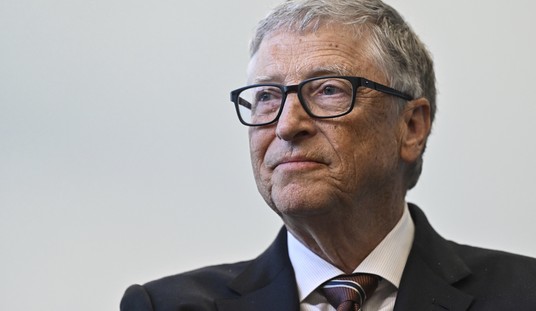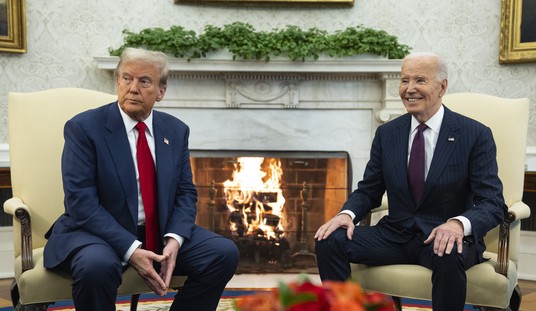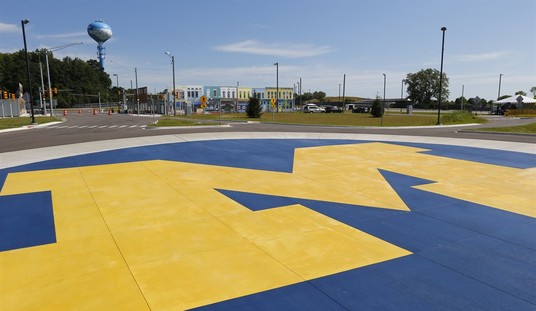“This is a major defeat,” said a senior Kremlin adviser, adding that the events of the last 24 hours bitterly remind Russian officials of the 2004 Orange Revolution, when Mr. Yanukovych saw his fraud-tainted election victory overturned after massive street protests brought a pro-western government to power.
“We made the same mistakes again” this time, said the Kremlin adviser, who spoke on condition of anonymity. “For us, the conclusion is that the West succeeded in engineering a coup d’état.”
Just what Russia’s reaction to this apparent setback would be wasn’t immediately clear. Western officials seemed to be going out of their way not to provoke Moscow. Some Kremlin aides in recent weeks had suggested Moscow could intervene to protect pro-Russian regions if Ukraine were to slide into civil war, but there is been no indication of high-level Kremlin support for such a move.
Fraternal assistance — This is a Soviet expression, once used to justify the Soviet invasions of Prague in 1968 and Afghanistan in 1979. “Fraternal assistance” was intended to prevent Soviet puppet states from being overthrown, whether violently or peacefully. In December, Russian President Vladimir Putin called Ukraine a “fraternal” country, hinting that he sees it as a puppet state. This week, a senior Russian parliamentarian declared that he and his colleagues are “prepared to give all the necessary assistance should the fraternal Ukrainian people ask for it.” This may well be the cue for pro-Russian organizations inside Ukraine to ask for intervention.
Anti-terrorist operation — This is a Putin-era expression, used to justify the Russian invasion of Chechnya in 1999. An “anti-terrorist operation,” in this particular context, means that anything is permitted: The term granted Russian soldiers carte blanche to destroy Grozny, the Chechen capital. This is why so many reacted with horror earlier this week when the Ukrainian defense ministry warned that the army “might be used in anti-terrorist operations on the territory of Ukraine.”
While many in Kiev are celebrating today, the situation in some other parts of the country still appear tense. For an example, look toward Crimea. The video below shows a small anti-government group being violently harassed after trying to honor those who died in the Maidan protests – they’re shouted down, called “fascists,” and eventually beaten before police step in. As the Guardian’s Shaun Walker, who tweeted the video, explains, it looks “extremely ominous.”…
Volodymyr Konstantinov, the speaker of Crimea’s parliament, recently told lawmakers that the region may well secede if Ukraine’s tensions begin to pull it apart. The parliament has also suggested that the region’s constitution be amended to list Russia as the “guarantor” of Crimea’s autonomy.
The situation is complicated by the fact that many Russians view Crimea as part of Russia: one recent poll found that 56 percent of Russians view Crimea as a Russian territory – a far larger percentage than the number who viewed Chechnya, inside Russian federation borders, as part of Russia (39 percent).
Since the collapse of Communism in 1991, the US and its European allies have seen keeping Ukraine independent of Russia as a key result of victory in the Cold War…
Bill Clinton famously declared that keeping Crimea in Ukraine and away from Russia was in America’s national interest…
But what complicates matters and makes them so dangerous now is that the most militant pro-Western protesters are violently anti-Russian…
If political and economic chaos leads to civil war in the country lying between Nato and Russia, Yugoslavia’s break-up would seem like a vicarage tea party.
The course of the protest has very much been influenced by the presence of a rival project, based in Moscow, called the Eurasian Union. This is an international commercial and political union that does not yet exist but that is to come into being in January 2015. The Eurasian Union, unlike the European Union, is not based on the principles of the equality and democracy of member states, the rule of law, or human rights.
On the contrary, it is a hierarchical organization, which by its nature seems unlikely to admit any members that are democracies with the rule of law and human rights. Any democracy within the Eurasian Union would pose a threat to Putin’s rule in Russia. Putin wants Ukraine in his Eurasian Union, which means that Ukraine must be authoritarian, which means that the Maidan must be crushed…
The protests in the Maidan, we are told again and again by Russian propaganda and by the Kremlin’s friends in Ukraine, mean the return of National Socialism to Europe. The Russian foreign minister, in Munich, lectured the Germans about their support of people who salute Hitler. The Russian media continually make the claim that the Ukrainians who protest are Nazis. Naturally, it is important to be attentive to the far right in Ukrainian politics and history. It is still a serious presence today, although less important than the far right in France, Austria, or the Netherlands. Yet it is the Ukrainian regime rather than its opponents that resorts to anti-Semitism, instructing its riot police that the opposition is led by Jews. In other words, the Ukrainian government is telling itself that its opponents are Jews and us that its opponents are Nazis.
A real democracy in Ukraine is an existential threat to the entire system that Vladimir Putin has built since 2000. Ironically because Putin is right – most Russians regard Ukraine as a kin state, or not really a different state at all. They are used to stepping in tandem; so if something changes in Ukraine, why not in Russia too? And now the dominoes might fall in the other direction. Other Maidans might appear in other neighbouring states – maybe first in Moldova where the Russia-backed Communist Party was hoping to return to power in elections due in November…
So the new government in Ukraine, however it’s made up, will be given the briefest of ritualistic honeymoons before Russia uses every instrument at its disposal to try to make it fail. Unfortunately, Russia holds most of the economic cards. Ukraine’s coffers are almost empty, and the old guard is busy looting what is left. It has less than $18bn (£10.9bn) in hard currency reserves, its currency is dropping and immediate debt-repayment needs are more than $10bn…
And if the West is serious about an alternative deal, Ukraine needs a lot of money fast. Fortunately, the West would no longer be throwing it down the black hole created by the old regime. Instead the money would support the kind of kamikaze leader Ukraine has never had in the past. Politicians were reluctant to make difficult choices and lose elections, because they’d never get back into power. Now Russia and the old regime will back any populist who promises to keep government subsidies flowing; but an honest kamikaze might just win the long-term credit and at least write his place in the history books.
To restate this dilemma in somewhat different terms, Ukrainian society is unable to produce a strong and united government that could limit the influence of foreign interests and lobbies that the Ukrainian state and people would follow a consistent course toward either Moscow or Brussels, much less find some kind of effective pathway in between. Meanwhile, given the inability of internal forces to set a firm course, Russia lacks the resources and the West lacks the will to attach Ukraine firmly and irrevocably to either camp. Thus we see what we see: a succession of failed governments as the country flounders and slithers in the mist…
Moscow cannot do the job without forcibly suppressing the western half of Ukraine. Such a war would be the most dangerous crisis in Europe since 1945 and one wonders whether the Putin government could survive a catastrophically expensive war and the ensuing isolation. Unless the intervention was lightening fast and the opposition was quickly suppressed, the cost of the war and the cost of pacifying and developing Ukraine in the aftermath would almost certainly wreck the Russian economy.
On the other hand, Putin would have grave difficulties surviving the loss of all Ukraine. The example of a popular revolution against a Moscow-leaning government is horrifying and destabilizing enough. Hatches are being battened down from Kaliningrad to Vladivostok as the FSB (ex-KGB) does its best to prevent any kind of contagion. The consequence of a united Ukraine joining the West would be infinitely worse. Putin’s dream of a Eurasian Union would suffer an irrevocable and decisive defeat. The loss of Crimea would infuriate Russian nationalists beyond endurance, and Putin would look helpless and weak in a political culture that worships only strength and success.
So why did Russia back off? The swaggering bombast of recent days has vanished. It sent to the talks one of the few figures in Russian public life likely to be acceptable to the protesters and the West—the human-rights ombudsman Vladimir Lukin. He came as a witness, not as a participant to the deal reached on Friday; Russia says through diplomatic channels that though it is not a party to that agreement, it will not sabotage it. The Kremlin seems to have stood down its separatists in Crimea, a stronghold of Russian interests (and home to a large Russian naval base). Does it prize Ukrainian territorial integrity more than the chance to meddle?
One explanation is that Mr Putin, not for the first time, misread the situation. The Orange Revolution of 2004-5 was sparked by Mr Yanukovych’s election-rigging—enthusiastically supported and advised by Russia. Perhaps the Kremlin had been fooled by its own propaganda, in which the protesters were merely a unrepresentative bunch of Western-financed anarchists and fascists. Perhaps it was worried by the prospect of chaos in its largest European neighbour. In the event of collapse or upheaval, refugees would be heading north as well as west…
But what will Russia do now? Most likely it will sit on the sidelines for a while. It can leave the West to try to manage the deal it has brokered. It will take years before Ukraine’s economy and public administration are strong enough to withstand Kremlin mischief. That gives plenty of time.
The geopolitical issue here is not whether Ukraine joins Europe or Russia. It is whether Ukraine becomes increasingly integrated into the political and economic community of Europe, as well as having a very close relationship with Russia. It is also whether the EU will stand up for basic European values on its own front doorstep, as it failed to do in Bosnia 20 years ago.
It is now clear that the EU miscalculated by delivering an us-or-them ultimatum last autumn, without offering Ukraine desperately needed ready cash or the clear and certain prospect of EU membership. As the Ukraine expert Andrew Wilson notes, the EU took a baguette to a knife fight. In recent weeks, it has done better. The deal signed Friday was a real success for the personal diplomacy of the German, Polish and French foreign ministers, and the argreement to release Yulia Tymoshenko was another positive sign. But does a Europe weakened by the Eurozone crisis have the strategic imagination and resolve for the long term?
Despite the blunders of the European Union — which courted Kiev without seeming to realize that Russia might make a counteroffer — Putin is struggling to win a battle for influence in a country that both the Romanovs and the Soviets dominated with ease.
And the struggle is particularly telling given that the Great Recession exposed the E.U. as a spectacularly misgoverned institution, whose follies consigned many of its member states to economic disarray. Yet even that record hasn’t persuaded the majority of Ukrainians to warm to Moscow’s embrace instead. It takes much more than mere misgovernment to make the European project less attractive than Putin’s authoritarian alternative…
The lesson in both [Ukraine and Venezuela] is not that late-modern liberal civilization necessarily deserves uncontested dominance.
But 25 years after the Cold War, from Kiev to Caracas, there is still no plausible alternative.








Join the conversation as a VIP Member